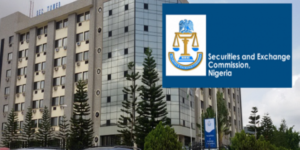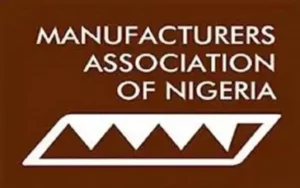
By David Akinmola
Executive Secretary of TETFund, Sonny Echono (fifth left), representative of the Executive Chairman (FIRS), Mr. Abubakar Sadiq (fifth right), and others at the end of the 2022 TETFund/FIRS joint interactive forum, held in Lagos.
The need to adequately fund Nigeria’s tertiary education has resonated frequently in recent times. The issue climaxed with the industrial action embarked upon by members of the Academic Staff Union of Universities (ASUU), which lasted about eight months before it was recently suspended.
Among the reasons for the industrial action, improved funding for universities was at the front burner. In this circumstance, proper funding of universities or the nation’s tertiary institutions, in general, includes a conducive learning environment, standard libraries, comfortable hostel facilities with basic amenities such as water, as well as a review of welfare packages for academic staff.
Worried by this development, The Executive Secretary (ES), Tertiary Education Trust Fund (TETFund), Arc. Sonny Echono recently called for a rethink of the entire idea of education funding in Nigeria.
Admitting in an interview with The Guardian that it was almost impossible for government alone to fund university education in the country, the ES suggested granting them autonomy as part of the solutions to incessant strike actions by the lecturer.
Beyond the call for autonomy, he equally admonished the government to critically appraise its policies regarding the funding of university education in the country.
He said: “But the government must admit that it cannot bear the burden alone. However, collectively, we should design a new funding architecture for tertiary institutions to address these issues.
“We need to rethink the whole idea of education funding to expand it to include all those grade levels and the participation of all actors; universities working extremely hard to generate internal revenue, attract grants, endowments and through the internally generated revenue (IGR), work towards self-sustenance.”
As part of the measures to address the issue, both TETfund and the Federal Inland Revenue Service (FIRS), have been collaborating over the need to boost the standard of tertiary education through improved funding.
The campaign for an upward review of Education Tax has traversed the nation’s geo-political zones with a common message of the need to boost education tax collection to advance tertiary education in Nigeria.
The most recent of the interactive was held early this week in Lagos with a theme, “Boosting Education Tax Collection for the Growth and Advancement of Tertiary Education in Nigeria.”
According to Echono, the Education Tax review will boost TETFund’s intervention projects in Beneficiary Institutions (BIs). Echono noted that the increasing need for interventions by TETFund has justified the call for an upward review of the Education Tax rate to three percent. This call, he stated was in line with the goals of different economies as cited by experts.
He further argued that the need to boost ‘Education Tax (EDT) collection, especially at a time the nation is confronted with economic challenges cannot be over-emphasized.
“There is no doubt about the fact that tax collections have a direct correlation to earnings and subsequently, the growth of any functional economic system. Invariably, therefore, the growth of the Education Tax, which forms the bedrock of TETFund’s Vision and Mission in the nation’s education is consistently on the front burner.
“It is therefore not a mere coincidence that the focus of our discourse in this year’s forum is centered on how to stimulate, improve and sustain the collection of education tax by all stakeholders.
“We duly recognize the immense contributions of your agency as the foremost and critical revenue service of the federal government, from which we as a funding agency of the same government derive our intervention and operational funds.
“We must therefore expand incidence by bringing all eligible taxpayers within the basket while assiduously improving the efficiency of the collection”, Echono stated.
As the Executive Secretary and the accounting officer of the Fund (Education Tax), Echono pledged commitment to the judicious usage of the fund in line with the Act establishing TETFund.
According to him, TETfund received an Education tax collection of N189 billion in 2021, which was N16 billion lower than the previous year’s collection. This he noted, posed a serious challenge to the intervention activities of the Fund for the year 2022.
“We had to scale down project implementation for the year in our beneficiary institutions and our internal operations as well.
“With the improved Education Tax collection for this 2022, I am delighted to note that the FIRS has given necessary impetus to our desire copiously expressed on the need to increase its drive on the education tax collection.
“As of September this year, the education tax collection was reported to have recorded over N309 billion, exceeding the N305 billion target set by the FIRS for the year.
“This explains my earlier excitement and hope of an improved revenue generation, ultimately attaining an N500 billion yearly education tax collection by 2025. Further to this, it is imperative to ensure that the Education Tax net expands to cover as much as possible to further improve the tertiary education sector, the ES stated.
Still, in his address, the ES emphasized the need to consistently initiate and sustain proactive measures such as auditing, which is an integral part of making sure that everyone pays their fair share of taxes. According to him, recent trends and reports on the tax gap had proven that a low audit rate was a major impediment to revenue generation, especially in education tax collection.
He was however optimistic that the forum would afford the parties a veritable platform to discuss the issue comprehensively as well as look into several other options and possibilities for boosting education tax collection in the country.
He said: “I do not doubt that FIRS is fully equipped with the knowledge and expertise and is equally empowered with the force of law and the instruments of state to achieve this boost.
“Let me reiterate, and I believe that the FIRS will agree with me on the need to constantly appreciate taxpayers and the tremendous sacrifice they make to meet their corporate obligations. We assure them that the funds contributed would be prudently and judiciously deployed to rebuild the broken walls of the nation’s ivory towers”, the ES added.
Also speaking, the Executive Chairman, of FIRS, Muhammad Nami, noted that the theme for this year’s forum synergizes with the vision of the Service, which is to make taxation the pivot of national development.
Name, who was represented at the forum by the Director and State Coordinator, Lagos Mainland East, FIRS, Abubakar Sadiq Mohammed, commended the board and management of TETfund for their steadfastness in organizing the forum.
According to Nami, the interactive forum served as an accountability platform to various stakeholders, stressing that there has never been a time such, where debate for accountability and transparency from government institutions, particularly in this electioneering season, has been demanded by citizens.
He added that it was vital for institutions such as FIRS and TETFund to undertake activities such as the interactive sessions, which sought to engage stakeholders and report to them, how taxpayers’ monies had been expended.
The name was elated that the tertiary education tax has improved significantly since the beginning of 2022, noting that the Service has collected N309 billion as of September 2022.
“This is above the total N305 billion budgeted for the full year. I assure you that we will continue to ensure that no revenue gap is left uncovered in our quest to improve tax administration with particular emphasis on the full deployment of technology across our service lines and internal operations.
“The introduction of our Tax Administration Solution (Taxpromax) has enhanced compliance and collection of taxes from taxpayers. More importantly, we have been able to deploy technology to ease the burden of compliance to the taxpayers.”
Adding: “We are doing more in this regard. Recently, we launched our Service Charter, which encapsulates the rights of the taxpayer and the obligations of the tax administrator to the taxpayer. It is noteworthy that despite economic headwinds, FIRS has continued to make progress in revenue mobilization for the three tiers of government.
Suffice it to say that the FIRS is now funding a significant portion of the Federal Account Allocation Committee (FAAC) in the last two years”, he noted.
Name added that between January and September this year, FIRS collected N7.5 trillion, which is a significant improvement on the total collection of N6.4 trillion for the entire 2021. With this level of improvement, he stated that the 2020 reforms have started yielding positive results.






